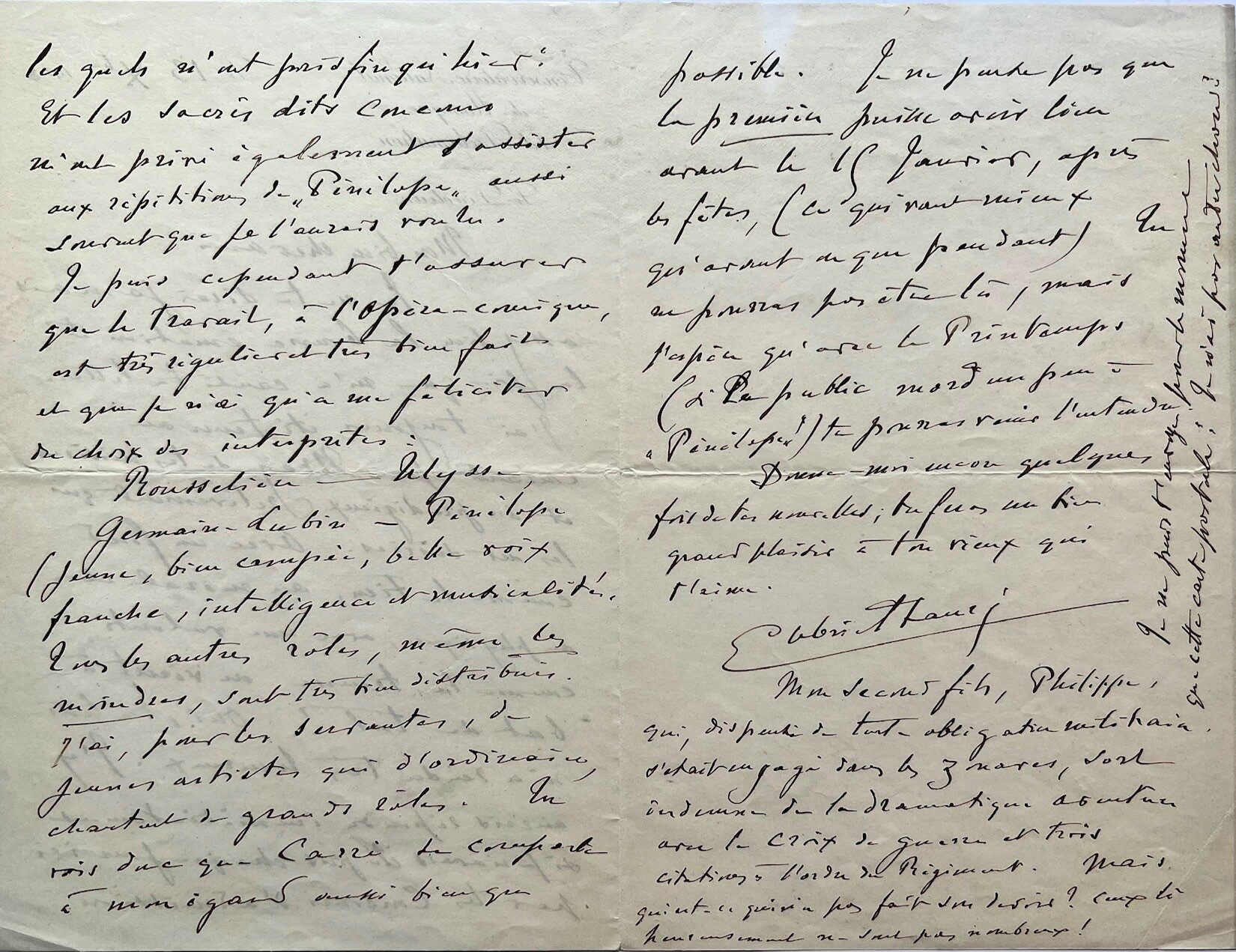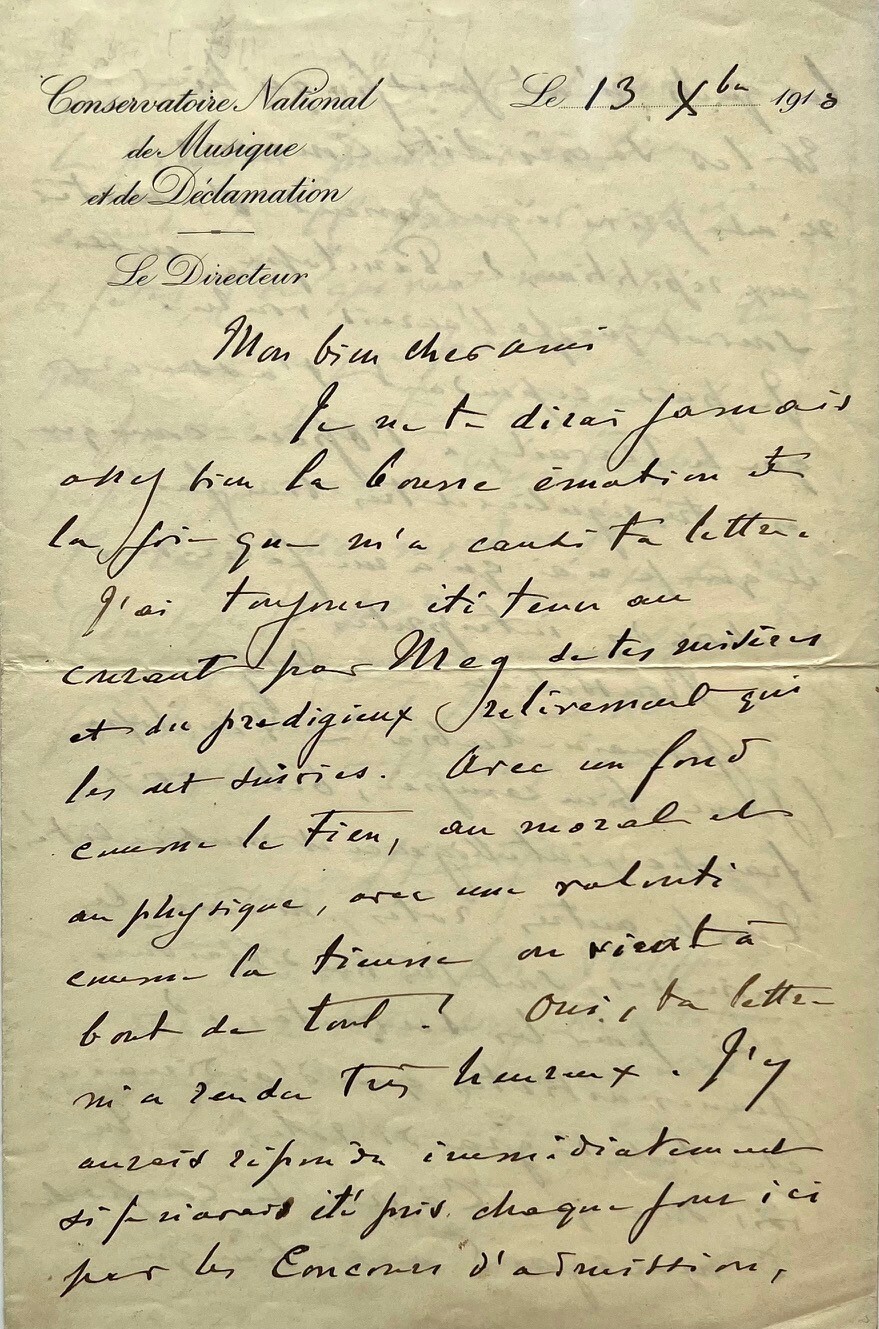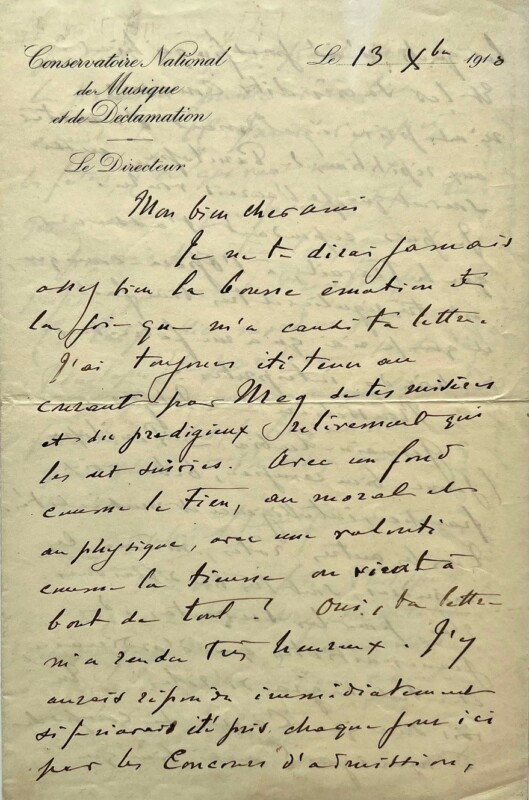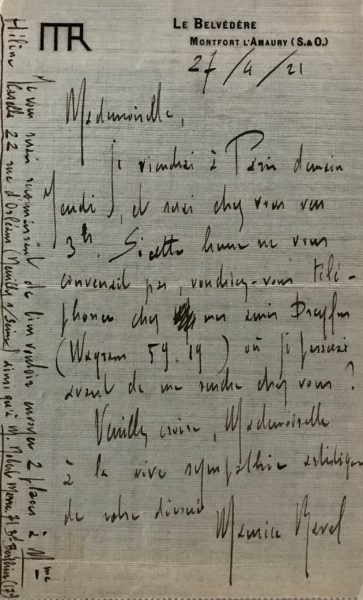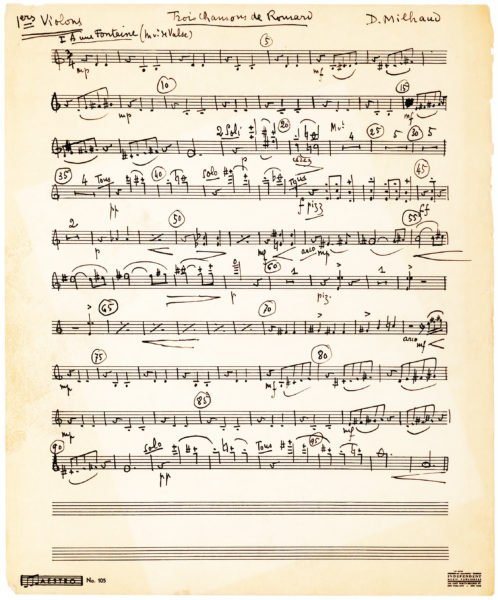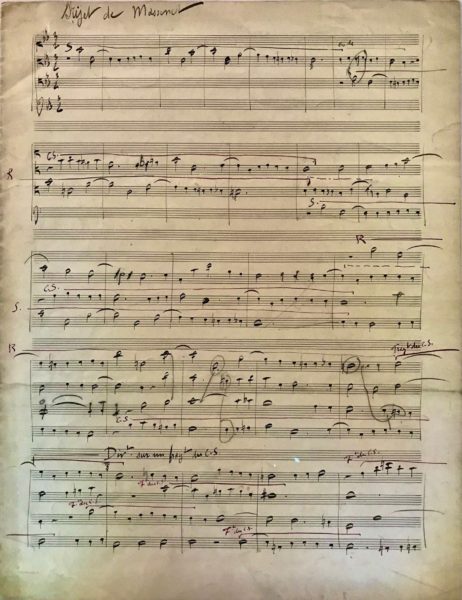All other roles, even the smallest ones, have been very well distributed. I have, for the servants, young artists who usually sing great roles. You see, then, that Carré is behaving towards me as well as possible. I do not think the premiere can take place before January 15, after the holidays (which is better than before or during the holidays). You will not be able to be there, but I hope that with Spring (should the audience fall slightly for Penelope!) you can come and hear it.
Give me some more of your news occasionally; you will give great pleasure to your old man who loves you…
My second son, Philippe, who was exempt from all military obligations, had enlisted in the Zouaves, and escaped, unscathed, from the dramatic adventure, with the Croix de Guerre and three citations on the order of the Regiment. But who has not done his duty? Fortunately, there are not many.
For the moment, I can only send you this postcard [?]: I have nothing else.”
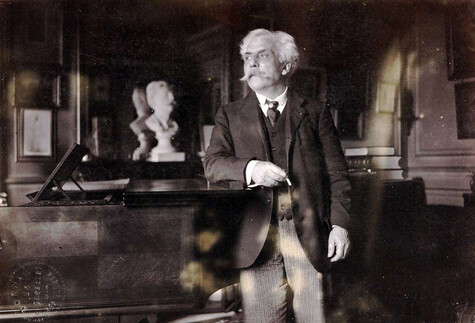
Gabriel Faure
Following Massenet’s resignation from the Conservatoire for having been denied a lifetime appointment, and despite faculty protestations that his music was too modern, Fauré was granted a professorship in place of Massenet. Among his many students were Maurice Ravel, George Enescu and Nadia Boulanger. After a scandal surrounding the elimination of Ravel from the Prix de Rome in 1905 prompted the early retirement of the Conservatoire’s director, Fauré was chosen to head the highly-regarded institution. Backed by the government, he implemented sweeping administrative reforms and modernized the curriculum, earning the nickname “Robespierre” from his enemies.
During the summers of 1907-1912, Fauré worked on an opera based on The Odyssey, but his overwhelming responsibilities at the Conservatoire, referred to in our letter, prevented composition during the school year. With a pared down libretto by René Fauchois, Fauré’s Pénélope received a lukewarm reception at its Monte Carlo premier in March 1913. However, the Paris opening two months later at the Théâtre des Champs-Elysées was more successful. That same theater was also the venue of the riotous first performance of Stravinsky’s ballet The Rite of Spring, three weeks later, which overshadowed Fauré’s opera. Six months later the theater went bankrupt and sold the sets and costumes for Pénélope. The opera, the second of only two Fauré composed, received another chance when it was staged by the Opéra-Comique in January 1919, shortly after Fauré wrote our letter. The young French soprano Germaine Lubin (1890-1979), who later became associated with the works of Wagner and was accused of collaborating with the Nazis during WWII, filled the title role, and French tenor Charles Rousselière (1875-1950) reprised the role of Ulysses which he had sung at the Monte Carlo premiere. Albert Carré (1852-1938) enjoyed a long career as a theater director and led the Opéra-Comique from 1898-1914 and again from 1919-1925, elevating the theater’s status by staging Italian operas and commissioning new works like Debussy’s Pelléas et Mélisande, Charpentier’s Louise and Dukas’ Ariane et Barbe-bleue.
In addition to his World War I military service, discussed here, Philippe Fauré-Frémiet (1889-1954) was a writer whose works included non-fiction, plays and biographies of both his father and grandfather.
Folded and in very fine condition.

